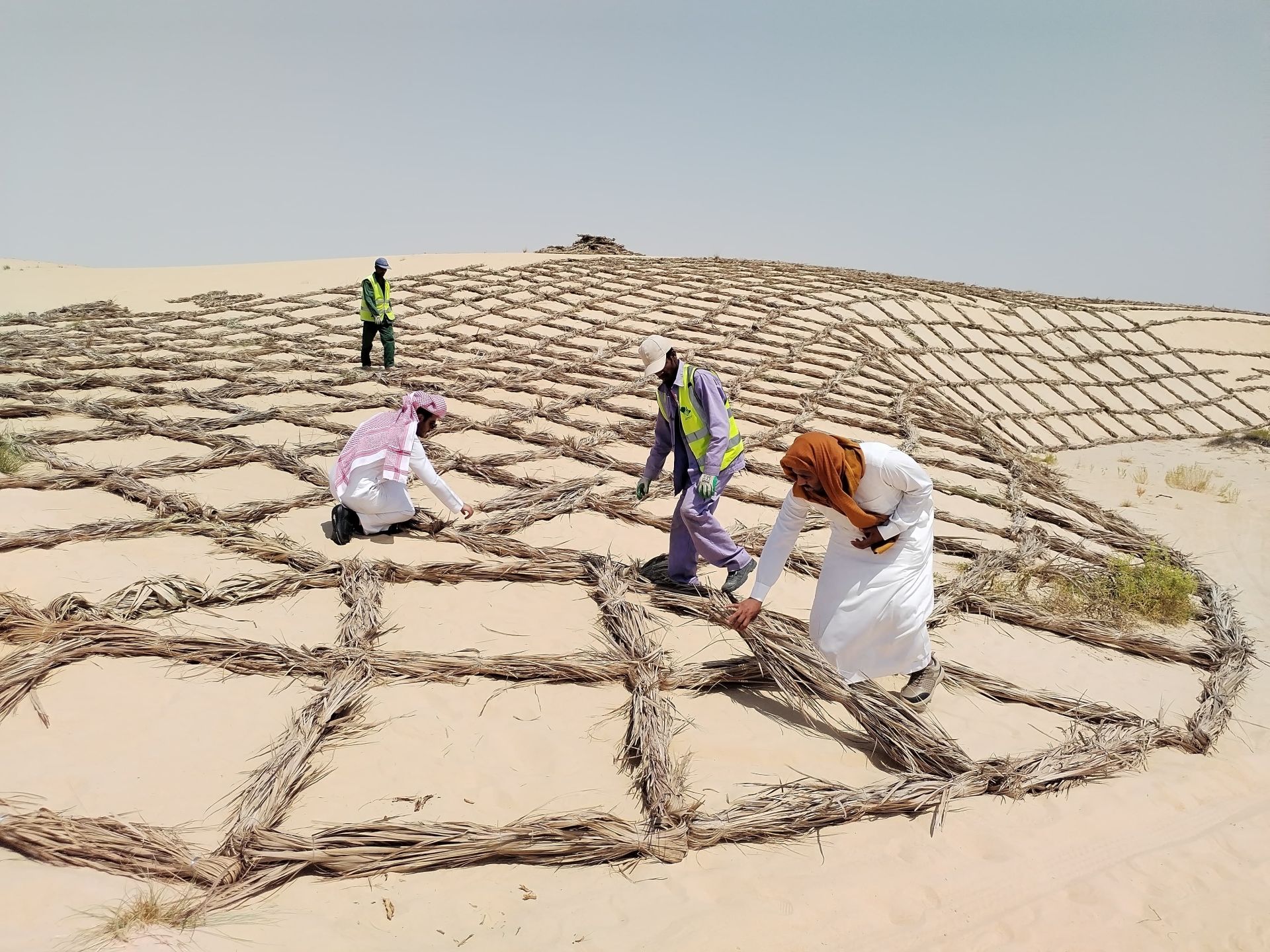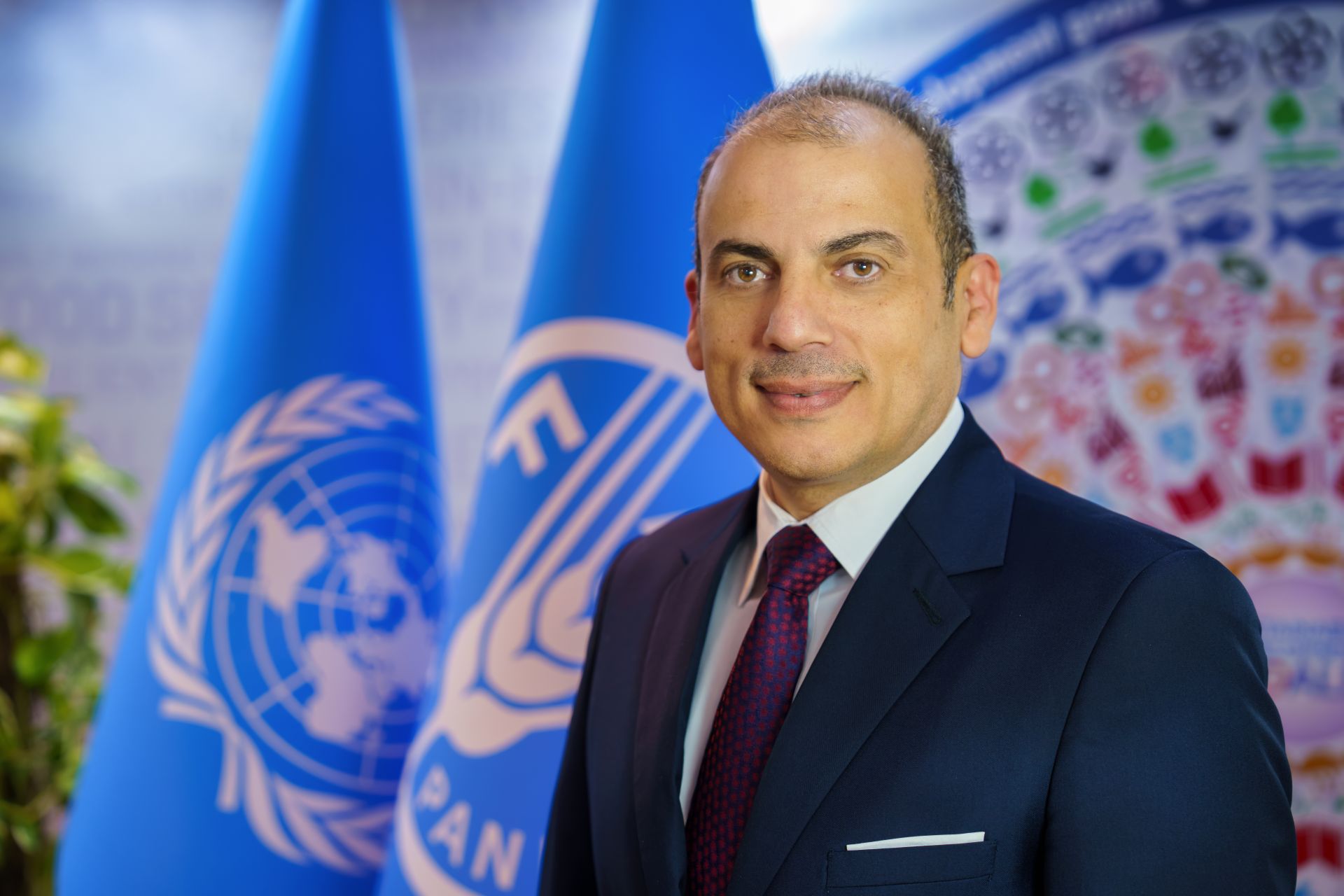Opinions
FAO reaffirms commitment to land restoration on World Day to Combat Desertification and Drought

©FAO
On this year’s World Day to Combat Desertification and Drought, the Food and Agriculture Organization of the United Nations (FAO) reaffirms its unwavering commitment to Saudi Arabia’s transformative efforts to restore degraded land, combat sand encroachment, and strengthen climate resilience.
Under the theme, “Restore the land. Unlock the opportunities,” this day highlights the immense potential of land restoration to foster ecological sustainability, stimulate economic growth, and enhance social well-being. It also marks the ongoing UN Decade on Ecosystem Restoration (2021—2030), a global movement rallying nations, communities, and organizations dedicated to protecting and restoring ecosystems, halting degradation, promoting ecological resilience and supporting sustainability.
In 2020, during its G20 Presidency, Saudi Arabia launched a global initiative to combat land degradation and desertification, backed by a 10-year funding commitment. The initiative emphasizes the importance of international cooperation to restore degraded land, support local communities, and promote knowledge sharing of practical solutions such as reforestation and sustainable land use. It is exemplified by the G20’s voluntary Land Degradation and Restoration Initiative, which aims to accelerate global action through innovative financing, capacity building, and private sector engagement. This reflects the Kingdom’s belief that land restoration is essential for ensuring food security, stability, and a more resilient future.
A legacy of partnership and progress
This World Day also celebrates over six decades of enduring and impactful partnership between the Kingdom of Saudi Arabia and FAO—a longstanding collaboration that consistently delivers tangible results in sustainable land management, climate resilience, and food security.
Since the early 1950s, FAO has been a steadfast partner to Saudi Arabia, beginning with pioneering irrigation projects in Wadi Jazan and expanding to broader support for rural livelihoods, forest management, rangeland restoration and rehabilitation, and institutional capacity building.
Today, Saudi Arabia stands as a global leader in reversing land degradation, mitigating drought impacts, reducing carbon emissions, and strengthening resilience through innovative policies and bold initiatives aligned with the Kingdom’s Vision 2030.
Saudi Arabia’s bold land restoration initiatives
Saudi Arabia exemplifies global leadership in land restoration efforts through diplomacy and financing. By hosting the UNCCD COP16 in Riyadh in December 2024, the Kingdom brought together nearly 200 countries and launched the Riyadh Global Drought Resilience Partnership, mobilizing over SAR 12 billion (USD 3.2 billion). This initiative supports drought-prone countries through public and private investments, benefiting more than 80 vulnerable countries in their fight against drought and land degradation.
Under Vision 2030, the Kingdom launched the Saudi Green Initiative, aiming to plant 10 billion trees, expand protected natural areas to 30 percent of the national territory, and rehabilitate 40 million hectares of degraded land. As of 2023, over 41 million trees have been successfully planted across the region, exemplifying Saudi Arabia’s leadership in regional and global afforestation. The Middle East Green Initiative (MGI), also led by Saudi Arabia, aims to plant an additional 40 billion trees across the region, positioning Saudi Arabia at the forefront of one of the world’s most ambitious afforestation campaigns.
Projects such as the Al Baydha regeneration model near Makkah demonstrate the power of integrating traditional water harvesting techniques and permaculture approaches in arid landscapes. The restoration of Thadiq National Park has seen the successful planting of hundreds of thousands of native saplings—stabilizing soils, reducing erosion, and improving ecological health.
Supporting evidence-based strategies for sustainable land management
FAO remains a trusted technical partner. Through the Sustainable Rural Agricultural Development Programme (SRADP), FAO collaborates with the National Center for Vegetation Cover Development and Combating Desertification (NCVC) and the Ministry of Environment, Water and Agriculture (MEWA), to implement sustainable land management frameworks, scale up restoration interventions, and build national expertise.
Saudi Arabia has advanced its effort through innovative methodologies for land degradation monitoring. Supported by FAO, Saudi Arabia through NCVC, submitted its UNCCD reporting, including land degradation mapping at 124 sites, utilizing open-source data layers, decision-support maps, and a visual dashboard to track progress and inform policy. These methodologies enable precise and adaptive land management strategies.
The NCVC, working under MEWA, develops and executes a strategic plan to combat desertification, drought, and sand encroachment. With FAO’s technical support, NCVC crafted a comprehensive national plan that integrates early warning systems, reforestation efforts, rangeland restoration, and community-led land rehabilitation. These interventions are transforming priority regions such as Al Jouf, Tabuk, and the Eastern Region.
FAO and NCVC are actively advancing Saudi Arabia’s global commitments in achieving Sustainable Development Goals 13 and 15, supporting the United Nations Strategic Plan for Forests and the Strategic Framework of the United Nations Convention to Combat Desertification (UNCCD) and contributing to the Bonn Challenge.
In 2024, FAO, NCVC, and World Overview of Conservation Approaches and Technologies (WOCAT) took bold steps by training over 40 national experts in advanced sustainable land management techniques. These experts document best practices in the Eastern region, Riyadh and Al Jouf, aiming to link these practices to existing land degradation challenges and scale them up in the similar sites.
FAO collaborates extensively with NGOs to establish native plant nurseries, create green belts, deploy dry palm leaf sand mechanical barriers, and launch community awareness campaigns—empowering local communities to protect and restore their land. A six kilometres linear sand mechanical barrier was constructed near AlAhssa National Park in the Eastern Region by a local NGO, demonstrating the vital role of Saudi NGOs in combating desertification.
FAO has pioneered four innovative field-based sand fixation trials in the Eastern Region. By combining mechanical design innovations with advanced monitoring tools, these trials show promising potential to stabilize dune movement, increase vegetation cover, and restore ecological balance and biodiversity in vulnerable landscapes.
Additionally, FAO and Saudi Irrigation Organization (SIO) jointly assess and pilot a land restoration project along the northern boundary of the North Ring Road of Al Asfar Lake, covering approximately 47.3 hectares. They employ four innovative techniques—tracking dune movement, measuring sand flux, monitoring vegetation growth, and analyzing windbreaks porosity and density—to evaluate and optimize sand encroachment mitigation measures.
These ongoing efforts underscore FAO’s unwavering commitment to advancing science-based solutions for combating desertification. Working alongside MEWA, NCVC and SIO, FAO emphasizes the crucial role of innovation, collaboration, innovative strategies and knowledge exchange in restoring ecosystem and building resilience in arid landscapes.
A collective responsibility for land restoration
Saudi Arabia’s experience proves what can be achieved when science, policy, and vision are brought together. These efforts not only transform the national landscape but also offer valuable lessons to the global community. The Kingdom’s leadership in afforestation, sustainable land management, and drought resilience exemplifies the power of international cooperation—highlighted by initiatives such as the G20 Land Degradation and Restoration Initiative—that mobilize resources and foster knowledge exchange worldwide. From innovative financing to scalable dryland restoration, the Kingdom demonstrates that land degradation and drought are challenges, not inevitabilities.
Land degradation poses a formidable challenge, but it also presents an unparalleled opportunity. With innovation, collaboration, and a steadfast commitment to science-based solutions, we can restore our lands, revitalize ecosystems, and contribute to the global movement to combat land degradation, as well as unlock a sustainable future for Saudi Arabia and the region. Every action we take today brings us closer to a world where land is a source of resilience and opportunity.
It is my hope that the successful efforts we have undertaken here will serve as a model for many countries around the world. By sharing knowledge, replicating best practices, and fostering international collaboration, we can collectively restore lands, support resilient ecosystems, and build a sustainable future—here and everywhere. Let us repeat success stories here and across the globe.
As FAO Programme Director in Saudi Arabia, I am proud to stand alongside our national partners and international community in highlighting these efforts and sharing success stories. On this World Day to Combat Desertification and Drought, we celebrate progress, exchange knowledge, and reaffirm our collective responsibility to protect and restore land—today and for generations to come.

By: Dr. Nizar Haddad
FAO Programme Director – Saudi Arabia
